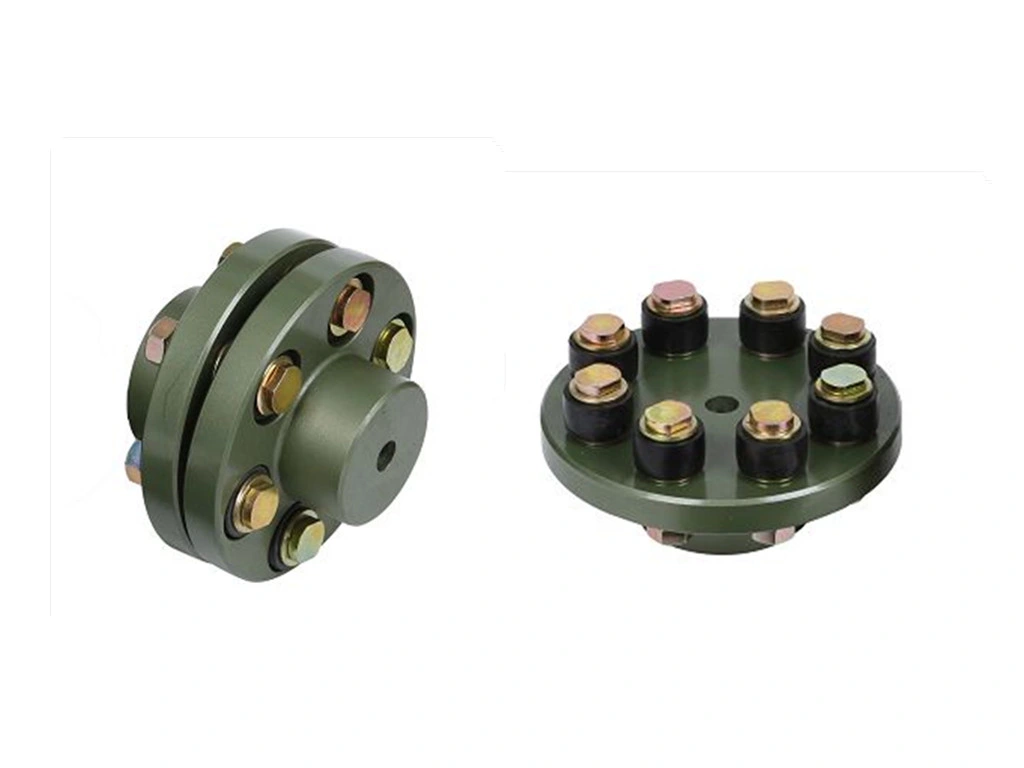Product Description
Product description
|
Material |
Materials for silicon,fluorine,NBR,FPM,EPDM,SILCONE ACM,HNBR |
| Inspection Equipments | Excellent chemical and physical property, excellent oil- resistance, high temperature stability, etc. |
| Tolerance | +/-0.05mm |
| Drawing Format | PDF/DWG/DXF/IGS/STEP,etc |
| Application field | Parts are used on vehicles, printing machines, food processing machines, textile machines, electronic machines, etc. |
| Manufacturing process | CNC machining Broaching, Drilling, Milling, Other Machining Services, Rapid Prototyping, Turning, |
| Shape | As per your drawing Or your sample |
| Color service | Customization |
| QC inspection |
Make sure 100% inspection before the delivery |
| Advantages | Maintenance,acturally HRC coupling doesn’t need maintenance. |
| Environmental, elastic components make HRC coupling applies to a variety of working conditions. | |
|
Reliable transmission, in case of elastic component is damaged, the dog segment wichcasted siamesedly still keep the transmission processing reliably. |
|
|
Economic, HRC couplings have already been made of optimization design,which make transmission power match the transmission shaft diameter. |
|
| Good recovery capacity, elastic components can reduce the load at the CHINAMFG moments, and the deviation is a major consideration when designing. | |
|
Adaptability of misalignment, HRC can coupling contains parallel shift, angle shift and axis shift which happen some times. |
Application and analysis
Our warehouse
Custom rubber parts
Custom plastic parts
Packing & Delivery
Packaging Details: plastic bag packing inside, carton packing outside, or customized packing.
Port:Xihu (West Lake) Dis.g port, ZheJiang city.
Lead Time :
| Quantity(Pieces) | 1 – 1000 | 1001 – 10000 | 10001 – 50000 | >50000 |
| Est. Time(days) | 5 | 12 | 18 | To be negotiated |
Place order steps
Our Services:
1. Convenient: 24th Hours sales/After-sales Service online or on the phone.
2. Quality Assurance: We will discuss with you and supply you the best quality comfortable to your market.
3. Quick delivery: Time is money, we promise we always will deliver the goods quicker than others.
4. According to customers’ drawing,customized specifications are welcomed.
5. Small orders can be accepted.
Packing
Company Profile
SHEN ZHOU CHINAMFG RUBBER & PLASTIC CO.,LTD was founded in 2000. The factory located in industrial zone of HangZhou city, ZheJiang province, china.
We have Plastic injection molding workshop and rubber compression molding workshops.Our main products includes Bakelit Knobs,Pull Handle,rubber door stops, door guard, roller, rubber bumpers, Rubber grommets, vibration dampers, seals, plastic corner, injection plastic brackets, injection plastic shell.to undertake various kinds of rubber molding and plastic injection parts, customize according to drawing and samples.
The products have been exported to America, Europe, Oceania, Middle East, Southeast Asia and other regions and countries, and hope to build more business Cooperation with new client from all over the world.
FAQ
Q1: Are you a manufacturer or a trading company?
A1: We are the original manufacturer of custom rubber parts and custom plastic parts.
Q2: Where is your company located?
A2: Our company is located in HangZhou City, ZheJiang Province, China.
Q3: Could I get free samples?
A3: We could provide small samples for free, but air freight or sea freight should be borne by customer side.
Q4: What should I provide in order to get an offer?
A4: Customers are required to provide material, inner diameter, outer diameter, cross section distance and quantity.
Q5: How is the goods packed by your factory?
A5: The goods are normally packed by plastic bags, carton boxes with pallets or wooden boxes.
Q6: What are the incoterms applied?
A6: The incoterms applied are FOB, CIF and CFR.
Q7: What are the payment terms accepted?
A7: We accept Alibaba Trade Assurance, T/T, L/C and West Union.
Q8: What about the delivery time?
A8: The goods are normally dellivered to customer side within 7-30 days based CHINAMFG the mode of transport required.
/* January 22, 2571 19:08:37 */!function(){function s(e,r){var a,o={};try{e&&e.split(“,”).forEach(function(e,t){e&&(a=e.match(/(.*?):(.*)$/))&&1

Can flexible couplings be used in precision motion control systems?
Yes, flexible couplings can be used in precision motion control systems, but careful consideration must be given to their selection and application. Precision motion control systems require high accuracy, repeatability, and minimal backlash. Flexible couplings can play a crucial role in such systems when chosen appropriately and used in the right conditions.
Selection Criteria: When selecting a flexible coupling for a precision motion control system, several key factors should be considered:
- Backlash: Look for couplings with minimal or no backlash to ensure accurate motion transmission and precise positioning.
- Torsional Stiffness: Choose a coupling with sufficient torsional stiffness to minimize torsional deflection and maintain accurate motion control.
- Misalignment Compensation: Ensure the coupling can accommodate the required misalignment without introducing significant variations in motion accuracy.
- Dynamic Performance: Evaluate the coupling’s dynamic behavior under varying speeds and loads to ensure smooth and precise motion control during operation.
- Material and Construction: Consider the material and construction of the coupling to ensure it can withstand the specific environmental conditions and loads of the motion control system.
- Size and Space Constraints: Choose a compact and lightweight coupling that fits within the available space and does not add excessive inertia to the system.
Applications: Flexible couplings are commonly used in precision motion control systems, such as robotics, CNC machines, semiconductor manufacturing equipment, optical systems, and high-precision measurement instruments. They help transmit motion from motors to various components, such as lead screws, spindles, or precision gears, while compensating for misalignments and providing shock and vibration absorption.
Specialized Couplings: For ultra-high precision applications, specialized couplings, such as zero-backlash or torsionally rigid couplings, may be preferred. These couplings are designed to provide precise motion transmission without any play or torsional deflection, making them suitable for demanding motion control tasks.
Installation and Alignment: Proper installation and alignment are critical to achieving optimal performance in precision motion control systems. Precise alignment of the coupling and connected components helps maintain accurate motion transmission and minimizes eccentricities that could impact the system’s precision.
Summary: Flexible couplings can indeed be used in precision motion control systems when chosen and applied correctly. By considering factors like backlash, torsional stiffness, misalignment compensation, and dynamic performance, users can select the right coupling to ensure high accuracy, repeatability, and reliable motion control in their specific application.

Can flexible couplings be used in marine and automotive applications?
Yes, flexible couplings are commonly used in both marine and automotive applications. They offer various advantages that make them suitable for these industries:
- Misalignment Compensation: In marine and automotive systems, there can be misalignments due to factors such as hull flexing in marine vessels or engine movements in vehicles. Flexible couplings can accommodate these misalignments, ensuring efficient power transmission between the engine and the propeller or wheels.
- Vibration Damping: Both marine and automotive environments experience vibrations from engines, propellers, or road conditions. Flexible couplings help dampen these vibrations, reducing wear on components and enhancing the comfort of passengers or crew members.
- Shock Load Absorption: Marine vessels and vehicles can encounter shock loads during operation, especially in rough sea conditions or uneven terrains. Flexible couplings can absorb and dissipate the impact of these shock loads, protecting the drivetrain and transmission components.
- Compact Design: Space is often limited in marine vessels and automotive systems. Flexible couplings come in various compact designs, making them suitable for applications with restricted installation space.
- Corrosion Resistance: Marine environments expose components to corrosive seawater, while automotive systems may encounter exposure to road salt and other corrosive substances. Flexible couplings made from corrosion-resistant materials, such as stainless steel or non-metallic compounds, are ideal for these applications.
- Easy Maintenance: Flexible couplings with self-lubricating features or low maintenance requirements are well-suited for marine and automotive applications, where regular maintenance can be challenging.
- High Torque Capacity: Automotive systems, especially in heavy-duty vehicles, require couplings that can handle high torque levels. Flexible couplings designed for automotive use offer high torque capacity and reliability.
Overall, the adaptability, vibration damping, and misalignment compensation provided by flexible couplings make them suitable for various marine and automotive applications. Whether used in boats, yachts, ships, cars, trucks, or other vehicles, flexible couplings contribute to smooth and reliable power transmission, leading to improved performance and reduced maintenance requirements.

What materials are commonly used in manufacturing flexible couplings?
Flexible couplings are manufactured using a variety of materials, each offering different properties and characteristics suited for specific applications. The choice of material depends on factors such as the application’s requirements, environmental conditions, torque capacity, and desired flexibility. Here are some of the commonly used materials in manufacturing flexible couplings:
- Steel: Steel is a widely used material in flexible couplings due to its strength, durability, and excellent torque transmission capabilities. Steel couplings are suitable for heavy-duty industrial applications with high torque requirements and harsh operating conditions.
- Stainless Steel: Stainless steel is often used to manufacture flexible couplings in environments with high corrosion potential. Stainless steel couplings offer excellent resistance to rust and other corrosive elements, making them ideal for marine, food processing, and chemical industry applications.
- Aluminum: Aluminum couplings are lightweight, have low inertia, and provide excellent balance. They are commonly used in applications where reducing weight is critical, such as aerospace and robotics.
- Brass: Brass couplings are known for their electrical conductivity and are used in applications where electrical grounding or electrical isolation is required, such as in certain industrial machinery or electronics equipment.
- Cast Iron: Cast iron couplings offer good strength and durability and are often used in industrial applications where resistance to shock loads and vibrations is necessary.
- Plastic/Polymer: Some flexible couplings use high-performance polymers or plastics, such as polyurethane or nylon. These materials provide good flexibility, low friction, and resistance to chemicals. Plastic couplings are suitable for applications where corrosion resistance and lightweight are essential.
- Elastomers: Elastomers are used as the flexible elements in many flexible couplings. Materials like natural rubber, neoprene, or urethane are commonly used as elastomer spider elements, providing flexibility and vibration damping properties.
The selection of the coupling material depends on the specific needs of the application. For instance, high-performance and heavy-duty applications may require steel or stainless steel couplings for their robustness, while applications where weight reduction is crucial may benefit from aluminum or polymer couplings. Additionally, the choice of material is influenced by factors such as temperature range, chemical exposure, and electrical requirements in the application’s operating environment.
Manufacturers typically provide material specifications for their couplings, helping users make informed decisions based on the specific demands of their applications.


editor by CX 2024-04-30
